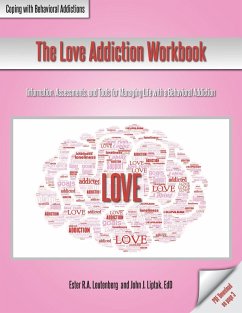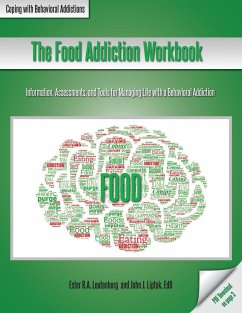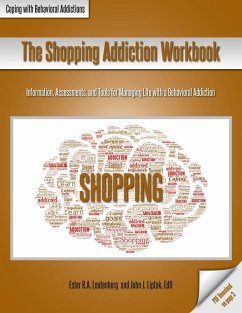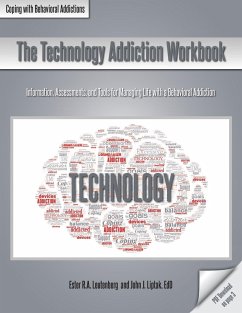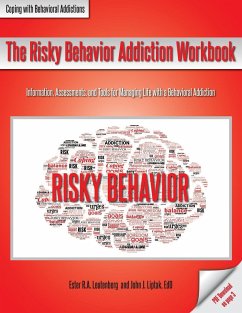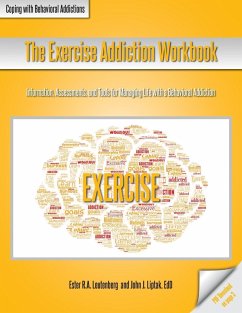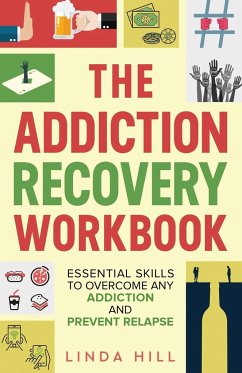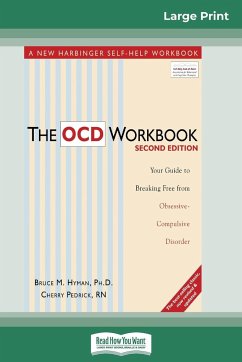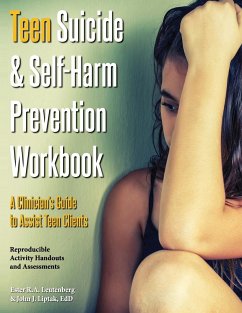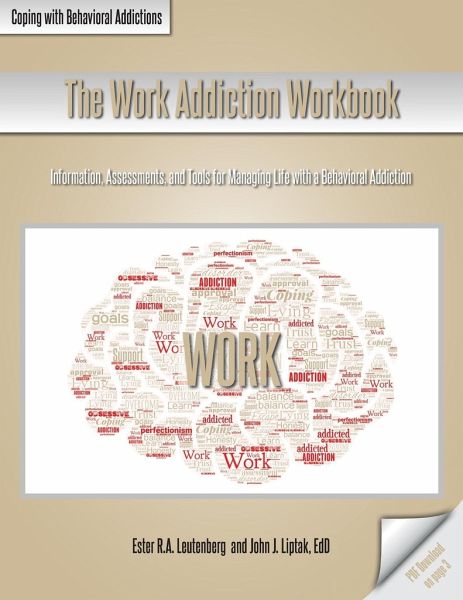
The Work Addiction Workbook
Information, Assessments, and Tools for Managing Life with a Behavioral Addiction
Versandkostenfrei!
Versandfertig in 1-2 Wochen
23,99 €
inkl. MwSt.

PAYBACK Punkte
12 °P sammeln!
The Work Addiction Workbook provides helping professionals with cognitive and behavioral assessments, tools, and exercises that can be utilized to treat the root causes of work addiction and to help people identify and change negative, unhealthy thoughts and behaviors that may have led to work addiction. Work Addiction Modules This workbook contains five modules of activity-based handouts that will help participants learn more about themselves and their addiction to work. These modules serve as avenues for self-reflection and group experiences revolving around topics of importance in the parti...
The Work Addiction Workbook provides helping professionals with cognitive and behavioral assessments, tools, and exercises that can be utilized to treat the root causes of work addiction and to help people identify and change negative, unhealthy thoughts and behaviors that may have led to work addiction. Work Addiction Modules This workbook contains five modules of activity-based handouts that will help participants learn more about themselves and their addiction to work. These modules serve as avenues for self-reflection and group experiences revolving around topics of importance in the participants' lives. The activities in this workbook are user-friendly and varied to provide a comprehensive way of analyzing, strengthening, and developing characteristics, skills, and attitudes for overcoming an addiction to work. The activities and handouts in this workbook are reproducible. Minor revisions to suite client or group needs are permitted, but the copyright statement must be retained. Module 1: Psychological Need This module helps participants become aware of and explore the psychological issues that drive them to need to work all the time. They examine how their obsession with work causes problems, including damaged relationships, health problems, and an inability to slow down and enjoy life outside of work. They learn methods to manage psychological needs driving them to overwork, such as low self-esteem, work as a coping mechanism, and approval-seeking behavior. Module 2: My Work Patterns This module helps participants explore and recognize the patterns that lead to a work-related problem. They examine how they live in denial and do not see how their overworking patterns affect them and the people in their lives. They endeavor to become aware of their overworking patterns and how these patterns are often the starting point of their recovery. Module 3: I Have a Problem This module helps participants examine how their work addiction is a maladaptive pattern of excessive behavior that manifests in physiological, psychological, and cognitive symptoms. Participants discuss how their addiction encompasses the same symptoms as someone addicted to a substance. Exercises are included to help them examine the extent of their work addiction. Module 4: Maintain Wellness This module helps participants realize they are at risk of burning out because of their work addiction unless they maintain a sense of wellness. They examine their emotional, physical, and mental exhaustion caused by excessive and prolonged work stress. Activities are included to help them feel less overwhelmed and emotionally drained and to build the ability to cope with the stress of life. Module 5: Work-Life Balance This module helps participants overcome an imbalance between their work and other life roles, such as their personal and family life. They will examine ways to develop a better work-life balance to split their time and energy between work and other vital aspects of life. They will learn tools and techniques for balancing work and life.





